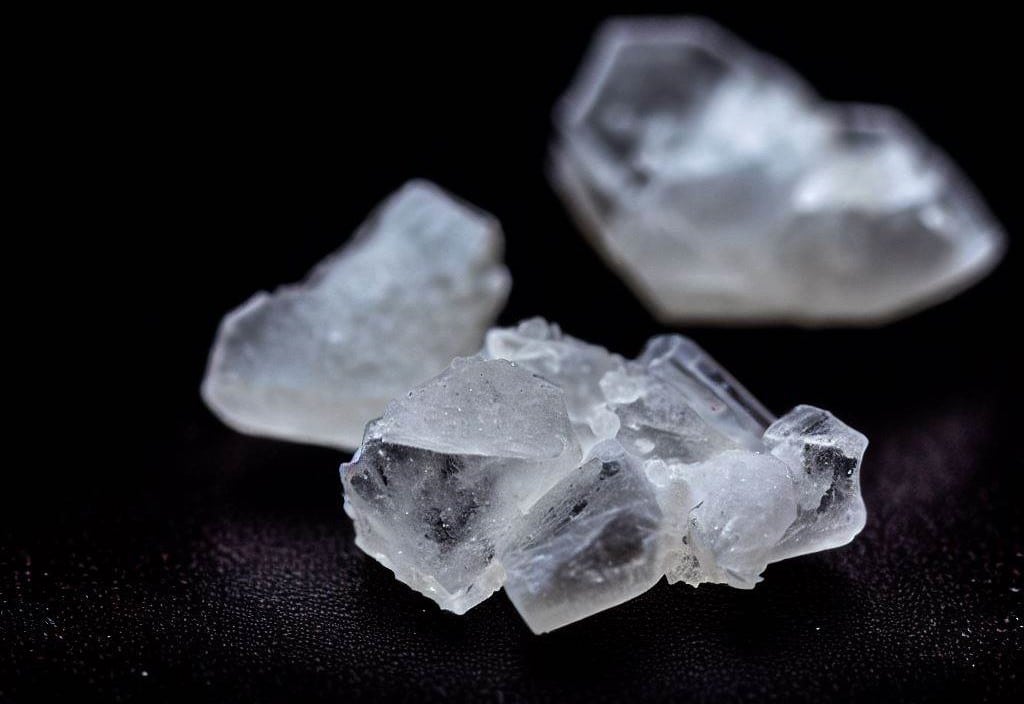From 1 July 2025, we can no longer dispense MDMA analogue
Properties of MDMA
MDMA, which can be taken during MDMA therapy, is seen as a hallucinogen, although it cannot easily cause hallucinations. The chemical name MDMA stands for 3,4-methylenedioxymethamphetamine, an organic compound with the chemical formula C₁₁H₁₅NO₂. MDMA is sometimes confused with XTC (ecstasy) because it also contains MDMA in addition to a substance such as speed. Only pure MDMA or similar substances (analogs) are used for therapeutic purposes.
In recent years, MDMA therapy has become increasingly known and, in addition to being used as a treatment against PTSD and trauma, it is also increasingly used during relationship therapy. This is because this drug is considered an anti-anxiety drug and it gives people more freedom to speak. You can read on this page why MDMA can be an effective tool during psychotherapy.
MDMA during therapy
Due to the increased release of serotonin and dopamine in particular, many receptors are stimulated more than normal after taking MDMA. Due to this increased activity on the receptors in the brain, there will be some changes in stimulus conduction in the brain, causing a number of effects that we can use to our advantage during a therapeutic session.
During the MDMA-assistive therapy, the MDMA therapist will use the changes below. If possible, exposure therapy can also be done to change triggers.
Better mood
Feelings of connection, happiness, euphoria and satisfaction are relatively common when using MDMA. If you start talking about your trauma or the triggers of your PTSD during this phase of satisfaction, the brain stores it in a different way. It might be a bit crazy for the brain. You feel satisfied and safe while talking about your trauma. You can also be gently exposed to your anxiety triggers while you are in that safe state. The brain will eventually associate the triggers with the positive state you are in. Exposure therapy works very well under the influence of MDMA because the triggers no longer immediately result in an anxious state.
Less ego/sense of self
With less sense of self/ego, things seem more connected because you are less likely to have to distinguish between yourself and the rest of the world. As soon as you look at yourself with less self-awareness, it sometimes seems as if it is about someone other than yourself. From these thoughts it is easier to talk honestly about yourself without an emotional blockage and there is less self-protection that can slow down the conversation. Less ego and self-consciousness can therefore lead to more openness and that can have a great advantage for processing the past, but also for conversation therapy, self-examination and personal growth.
Increased empathy
Releasing trauma often also includes forgiveness of the perpetrator and yourself as a victim. The victim must forgive themselves for the situation they were in and this also requires empathy for yourself in order to let go. Forgiving the perpetrator can also help in the process of dealing with the trauma. Greater empathy for the perpetrator without the ego's self-protection can often make forgiveness easier and more effective.
New insights
By using MDMA or an MDMA analogue, the brain will work in a different way than you are used to in a fasted state. Possible new insights can be gained, because the perspective on certain matters can temporarily shift. This effect cannot of course be predicted in advance, but changing perspective can play a role in progress. An additional advantage of these types of sessions is that curiosity for new insights is stimulated and can last long after the session.
Spiritual experience
It is more common with other psychedelics, but a spiritual experience can also occur during a session with MDMA. During the onset and peak effects of MDMA, the reduction in self-awareness can lead to a mystical experience. Spirituality can contribute to general well-being and is seen as a bonus during MDMA therapy.
Better memory
The anxiolytic (anti-anxiety) effect of MDMA offers many possibilities during the MDMA session. One of the advantages is that the memory can work better. Without inhibition of fear, certain difficult memories can be more easily retrieved and discussed.
Scientific research into MDMA
The use of MDMA as an aid during psychotherapy is not new. In the middle of the last century, many experiments were conducted with psychedelics such as LSD, psilocybin and MDMA to see whether these substances could help with certain psychological disorders. Unfortunately, these investigations have been halted by new laws. Since the beginning of this century, research has slowly started again and with MDMA research is mainly focused on trauma and PTSD. These studies are all completed very positively with often high success rates.

MDMA sessions are not for everyone
MDMA and substances similar to MDMA are not suitable for everyone. Combining certain medications and MDMA can be particularly dangerous to your health. Certain conditions can also be worsened by the use of psychedelics, including MDMA. MDMA cannot be combined with the medications, conditions and/or situations listed below.

Contraindications conditions/situations
- Pregnancy
- Breastfeeding situation
- Schizophrenia
- Bipolar disorder
- Borderline
- Psychosis sensitivity (or history of psychosis)
- Severe Blood Pressure/heart problems
- Brain hemorrhages
Contraindications to medication
- Lithium
- Heart and/or blood pressure medications
- Opoids (tramadol, morphine and codeine)
- TCA (Tricyclic antidepressants)
- MAOi (Monoamine oxidase inhibitors)
- SSRI (Selective Serotonin Reuptake Inhibitors)
- SNRI (Selective Serotonin and Norepinephrine Reuptake Inhibitors)
- Antipsychotics
Start the intake
Legal MDMA therapy
In the Netherlands, MDMA is an illegal substance. We therefore used to work with a substance closely related to MDMA, the so-called MDMA analogue. In chemistry, analogue refers to a substance that is chemically related such that it is similar in terms of molecular structure with subtle differences. In the case of the MDMA analogue, this is also the case. The structure is almost the same and the minute difference makes it firstly legal, it gives less energy than MDMA and produces more positive and empathic feelings. For most people, during the days after the session, there is less of the well-known Tuesday dip that is common with MDMA use. These differences, in our opinion, make it even more suitable for MDMA sessions. An advantage and disadvantage of the MDMA analogue is that the effects last a little longer.

| Characteristics | MDMA | MDMA Analogue |
| Duration of operation | 4-6 hours | 5-7 hours |
| Energy | Increasing | Unchanged/dreamy/relaxed |
| Emotional | Stronger emotions (all), Empathy, Ecstasy, more social | Stronger emotions (all), More empathy and euphoria than with MDMA, more social |
| Visual | Very small chance of hallucinations | Slightly more visual effects (color, geometry) |
| Memory | Better memory | Better memory |
| Music | Stronger experience/appreciation | Stronger experience/appreciation |
MDMA analog information page
For more information about the MDMA analog, the legal status of this drug, the risks, break time between sessions and how the body metabolizes MDMA, please refer to the information page below.
Which therapist do you choose?
Choosing the right MDMA therapist is an important and personal decision, taking into account experience and expertise, the therapist's background and education, personal click, location and availability, and possibly gender. In the overview below, you can already see who you can choose from for an MDMA session.
Marcel
🇳🇱 🇬🇧
Founder Trip Therapy & Psychedelic Guide
With a background in chemistry, a passion for philosophy, combined with extensive knowledge of psychology and health, his approach is holistic. Marcel is a full-time trip facilitator. With over 2100 guided sessions, Marcel has the most experience of our team.
Ronald
🇳🇱 🇬🇧 🇩🇪
Psychosocial therapist & psychedelic therapist
Ronald is a psychosocial therapist and has completed the following training courses: Jungian Philosophical Therapist, Psychodrama Therapist, Master Voice Dialogue, Transformation Psychology, Internal Family System (IFS), Mindfulness and Compassion Trainer.
Janneke
🇳🇱 🇬🇧
Confidential counselor & psychedelic guide
Janneke studies Applied Psychology, is a lifestyle coach, provides initial customer contact, draws up lifestyle plans and performs administrative tasks. She also acts as a confidential counselor. In addition to these tasks, she is available to a limited extent for coaching sessions.
Sascha
🇳🇱 🇬🇧
Psychologist & psychedelic therapist
Sascha has a good foundation as a psychedelic therapist with her studies in psychology, a Master's degree in Clinical Psychology and work experience in addiction care, (specialist) mental health care and rehabilitation as a psychologist. She has additional training in cognitive behavioral therapy and EMDR.
Reineke
🇳🇱 🇬🇧 🇩🇪
Psychologist & psychedelic therapist
As a psychologist, Reineke combines both regular and alternative care methods to provide the best possible treatment. She uses various techniques, such as talk therapy, yoga, breathing exercises and EMDR in combination with the therapeutic effects of psychedelics.
Gijs
🇳🇱 🇬🇧 🇩🇪
SPV & psychedelic therapist
Gijs has 20 years of experience in outpatient mental health care. He taught and supervised the MGZ-GGZ course at HAN (Arnhem Nijmegen University of Applied Sciences). Gijs has also developed extensively in mindfulness, talk therapy, neurofeedback, meditation, compassion training and ACT.
Rates and reservations
There are several options for using MDMA therapy. An individual session is the most commonly chosen option and with these sessions, you can choose which therapist and at which location to do this with. To calculate the price of these and to book, you can use the tool below. Furthermore, we also have group sessions with MDMA at our location in Schiedam. These involve two therapists and a maximum of 5 participants. More information is available via the buttons.
Pricing session on location
Easily calculate travel costs and which tutor will work at your location here.
White text: The supervisor works at your location provided it is in the Netherlands.
Orange text: The supervisor lives just outside your working area, but by mutual agreement it often works out.
Red text: You live too far away. Consider renting accommodation closer, another companion or participating in a truffleceremony or MDMA group session.
Enter your location:






